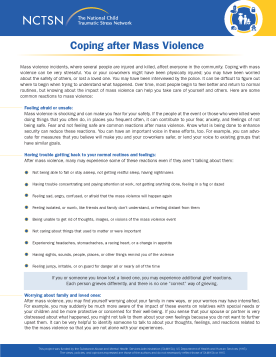
Coping After Mass Violence
Offers information on coping after mass violence. This fact sheet provides common reactions children and families may be experiencing after a mass violence event, as well as what they can do to take care of themselves.
The following resources on child trauma were developed by the NCTSN. To find a specific topic or resource, enter keywords in the search box, or filter by resource type, trauma type, language, or audience.

Offers information on coping after mass violence. This fact sheet provides common reactions children and families may be experiencing after a mass violence event, as well as what they can do to take care of themselves.
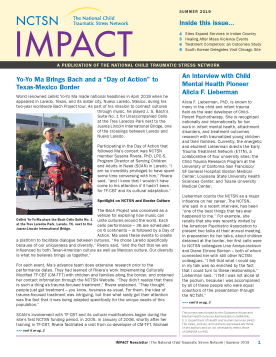
Offers a glimpse into the diverse work that our Network members do. In this vein, we profile one of our long-time members, Alicia F. Lieberman, PhD, a child mental health pioneer, as well as Rebecca Frances Hoffmann, an active Affiliate member.
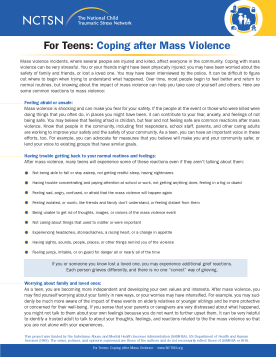
Offers information for teens about common reactions to mass violence, as well as tips for taking care of themselves and connecting with others.
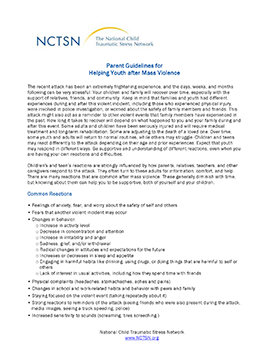
Offers parents guidance on helping their children after a mass violence event. This fact sheet describes common reactions children may have, how parents can help them, and self-care tips after a violent event.
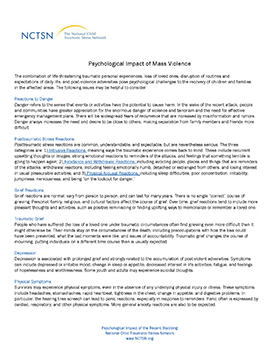
Provides parents and providers with information about the psychological impact of a mass violence event.
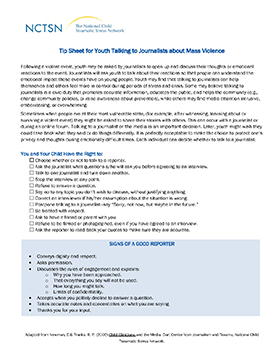
Provides guidance to youth, parents, caregivers, and others who work with youth about talking to the media after a mass violence event. This fact sheet details the rights of a child or adolescent when speaking with the media, as well as the signs of a good reporter.

Provides information on how to talk to children about mass shootings. This tip sheet describes ways to talk to children about mass violence events that involve a shooting. It gives tips about how to start the conversation, common reactions children may have, and how to seek help if needed.
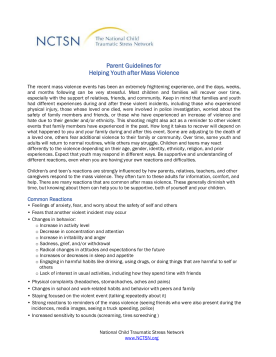
Describes common reactions to mass violence and provides tips for parents on how to care for themselves and their child. Updated March 2021.
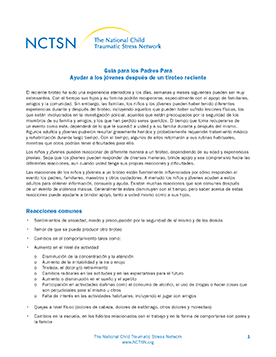
Offers parents guidance on helping their children after a mass violence event. This fact sheet describes common reactions children may have, how you can help them, and taking care of yourself after an event.

Provides information about how to talk to children about mass violence. This tip sheet describes ways to talk to children about mass violence, including how to start the conversation, how to deal with incorrect information, limiting media exposure, common reactions, and when to seek help.
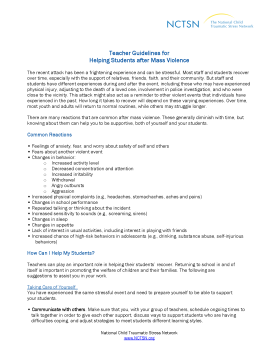
Offers teachers guidance on helping students after a mass violence event. This fact sheet describes common reactions students may have, how teachers and school staff can help, as well as engage in self-care after a mass violence event.
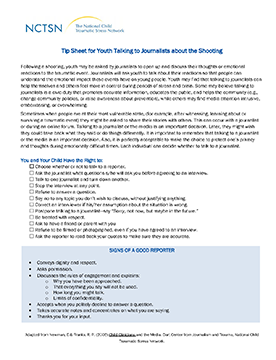
Offers information to youth, parents, and caregivers on how to talk with journalists after a mass violence event or shooting. This tip sheet describes a parent's and child’s rights when talking with journalists and details the signs of a good and respectful reporter.